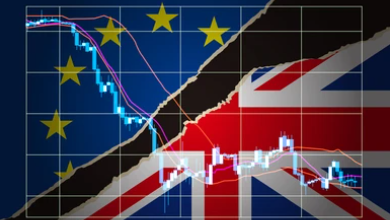- EUR/GBP drifts higher to around 0.8815 in Wednesday’s early European session.
- UK CPI inflation eased to 3.6% YoY in October from 3.8% in September.
- Markets have priced in nearly a 25% chance of a 2026 ECB rate cut.
The EUR/GBP cross gains ground to near 0.8815 during the early European session on Wednesday. The Pound Sterling (GBP) edges lower against the Euro (EUR) after the UK Consumer Price Index (CPI) inflation report. The final reading of the Harmonized Index of Consumer Prices (HICP) inflation report from the Eurozone will be published later on Wednesday.
Data released by the United Kingdom’s Office for National Statistics on Wednesday showed that the country’s headline CPI rose 3.6% YoY in October, compared to an increase of 3.8% in September. This reading came in line with the market consensus. The Core CPI, which excludes the volatile prices of food and energy, climbed 3.4% YoY in October versus 3.5% prior, meeting the expectation of 3.4%.
Meanwhile, the monthly UK CPI inflation increased to 0.4% in October from 0% in September. Markets projected a rise of 0.4%. The Pound Sterling attracts some sellers in an immediate reaction to the hotter UK CPI inflation data.
Following a series of rate cuts in 2024 and early 2025, the ECB has kept interest rates unchanged as inflation has stabilized near the 2% target. ECB policymakers Gabriel Makhlouf and Olaf Sleijpen made remarks that supported expectations that the central bank would stay on hold. The cautious stance of the ECB provides some support to the EUR against the GBP. Markets priced in a 25% chance of a 25 basis points (bps) ECB rate cut by July next year, down from 45% early last week.






